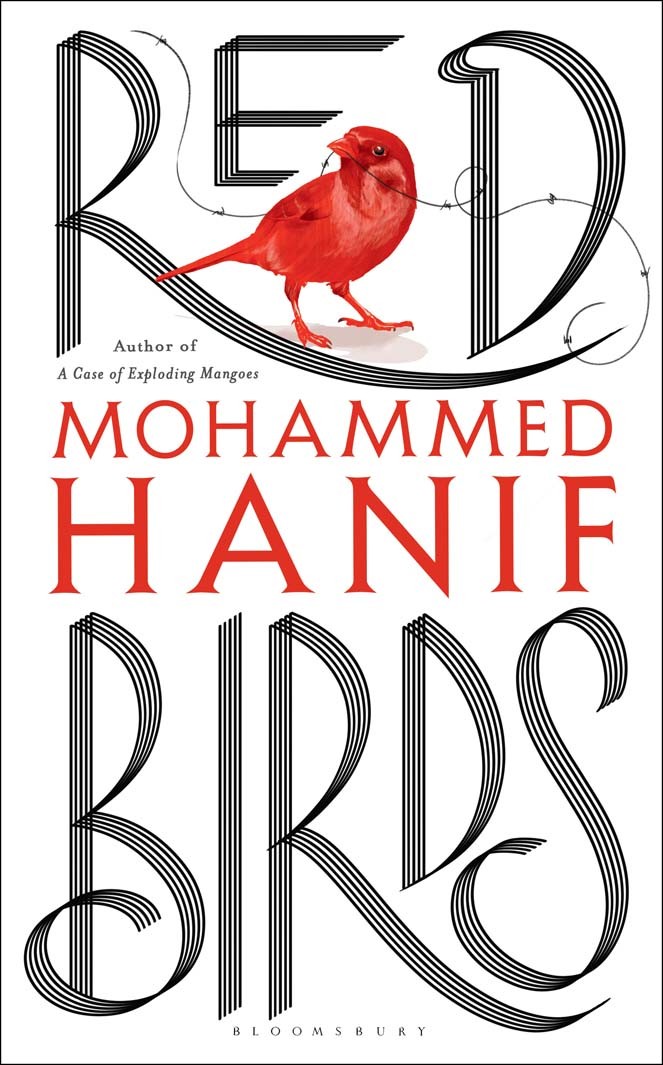
Mohammed Hanif’s new novel highlights the absurdity of modern wars

Dear All,
Author Mohammed Hanif’s new novel unfolds in a bleak landscape: a desert terrain featuring a forgotten refugee camp and a seemingly abandoned Hangar.
Red Birds, which is published this month, tells a tale of survival and loss, destruction and resilience. It’s a story told with the author’s usual wit and dark humour, so somehow he makes this essentially tragic tale quite humorous in many ways.
The story begins when a US airforce pilot’s plane crashes in the desert somewhere in this (unspecified) war-torn country, and the pilot is found by a teenager from the nearby refugee camp. The pilot, Major Ellie, finds refuge in the very camp he was meant to bomb, inside the home of a family in mourning for a lost son who they think was ‘sold to the Americans’. The missing boy’s younger brother, the 15-year-old Momo is a would-be entrepreneur and self styled ‘man of business’ who has decided that the making of money is the most important consideration in life and that the only way out of this dead-end refugee camp scenario is to look for opportunities to get rich. But Momo, despite all his bravado, is trying to find a way to deal with the disappearance of his older sibling Bro Ali, which has cast a very long shadow over the family home, where we are told you can both taste and smell the sadness. The camp too is a place where you can "smell the grief wafting out of the stoves in people’s houses".
The story is dominated by the search for Bro Ali as much as by Ellie’s inability to make sense of his own life or mission. The book has three narrators for most of the story -- Ellie, Momo and the family dog, Mutt -- but in its finale it features many more voices including that of Mother Dear and the American woman researcher who says she has come to the area to study the effects of conflict on young Muslim teenagers (as Momo wryly observes "First they bomb us from the skies, then they work hard to cure our stress"). But the sanest, most genuine narrator is actually Mutt, whose observations on the essential cruelty of human beings ring horribly true.
The futility of twentieth century western invasions of Muslim nations and the mindset they have inspired is a theme that runs through the narrative; as Momo muses "Maybe they got tired of bombing us? Maybe they needed those bombs elsewhere?"
American ignorance of other cultures despite various ‘cultural sensitivity training’ modules is another subject that is amusingly explored: Ellie for example, is very confused as to how Momo’s people can be Muslim but not Arabic speaking…
Red Birds is as much about human beings’ attitudes to survival as it is about their cruelty. But it’s not just about wars in general, the story takes place in the fallout of one particular sort of war, where the warfare used is dependent on remote technology which further dehumanises the targets. Ellie when musing on the nature of his commanders and his country’s role in armed conflict comments, "You’d think one-sided wars would have become boring by now. But they still keep at it."
This is Mohammed Hanif’s third novel, and it follows A Case of Exploding Mangoes and Our Lady of Alice Bhatti, both of which were set in Pakistan. Red Birds features the author’s typical dark wit and sense of the absurd but it is also sometimes a painful story to read. Essentially, this story is one of loss and grief and disappearance.
The book will be available in the UK on October 18.
Best wishes,